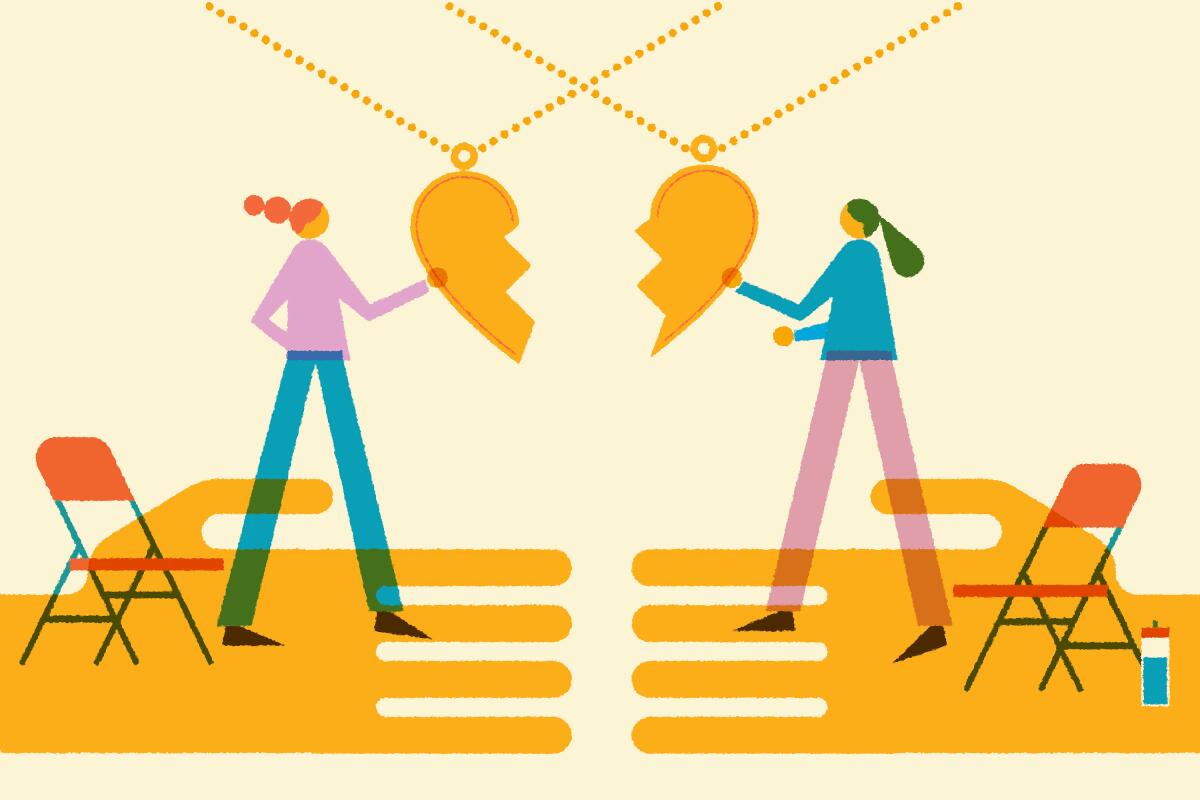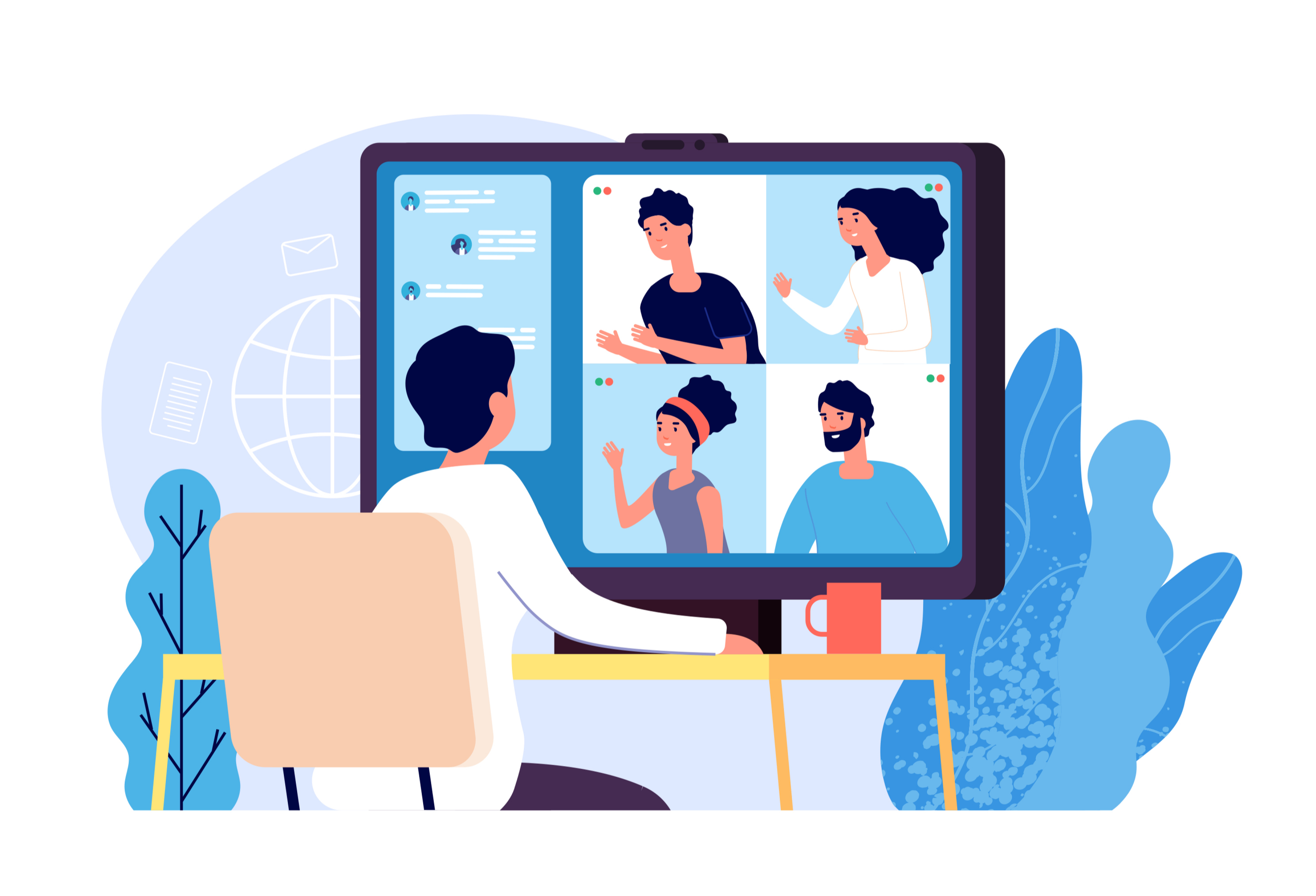Dating coaches are everywhere. Next up: Friendship coaches

The past decade has seen a significant growth in the coaching industry, extending beyond athletic coaching. What initially started as life coaching in the 1980s has evolved into a diverse array of coaching specialties. These now include career coaches, weight loss coaches, dating coaches, party coaches, and friendship coaches. Friendship, once the realm of secret diary entries for teenagers, has now become a prominent aspect of public discussion. Friendship coaches play a crucial role in addressing various aspects of social relationships, from navigating friendship breakups to emphasizing the significance of friendships over romantic relationships, even assisting individuals in making decisions like living near friends or purchasing a house with friends.
Studies indeed suggest that friendships have a profound impact on people’s well-being, contributing to longer, healthier, and more fulfilling lives. However, in recent times, many individuals have faced challenges in making, maintaining, and letting go of friendships. Several factors may be contributing to this phenomenon, including the loneliness epidemic, the effects of pandemic-related closures, increased online interactions, and the natural changes in social dynamics that come with getting older. These factors have combined to create a complex landscape for social relationships, prompting the need for friendship coaches and experts who can offer guidance in navigating these challenges.
Friendship coaches are indeed offering valuable guidance that goes beyond simply forming friendships. They provide insights and strategies for various aspects of friendship, including navigating the challenging process of ending a friendship when it becomes necessary. Additionally, they offer tools and techniques to help individuals identify which friendships are most meaningful and belong in their inner circle. This approach allows people to focus their time and energy on relationships that are most beneficial for their overall well-being and happiness.
Unlike dating coaches, whose approach often involves hands-on tasks such as creating and editing dating profiles, selecting photos, and crafting text messages, most friendship coaches primarily serve as educators. They typically provide guidance and education either in group settings or through one-on-one sessions. Their role is to impart knowledge, offer advice, and facilitate discussions to help individuals develop and navigate their friendships effectively. Friendship coaching focuses on personal growth, self-awareness, and skill-building rather than direct involvement in specific social interactions or tasks.
“It was very eye opening for me. I did a lot of soul searching and figuring out what I was looking for in friendships,” Diane Van Dyke, a 68-year-old retired elementary school teacher from Boca Raton, Fla., said of her friendship coaching experiences. During the pandemic, when she was still working, she found it difficult to make friends in her competitive and stressful work environment. Van Dyke learned about friendship coaching from a book and signed up for a group coaching circle.
Engaging in activities that involve connecting with perfect strangers and forming new relationships can be a rewarding and enriching experience. In this case, the individual was placed in small groups with strangers and given the task of reaching out to group members. Despite the initial unfamiliarity, the result was a lasting connection with three people. Their diverse backgrounds and life stages, with some having children in school and others having grandchildren, highlight the beauty of forging connections across different phases of life. These ongoing relationships serve as a testament to the enduring power of human connection and the potential for meaningful friendships to blossom even with individuals from diverse backgrounds and life experiences.
Van Dyke sees value in friendship coaching because people aren’t usually taught directly how to make, keep or think about friends. “It’s hard to facilitate teaching children to make friends when in a traditional classroom, lunchtime and recess are the only times children can talk openly with each other,” she said.
Van Dyke’s friendship coach was Shasta Nelson, who started off as a pastor offering marriage and divorce counseling before transitioning into friendship coaching. Some of the questions she would often ask her clients were, “ ‘Who’s supporting you as you go through this [divorce]? What are your friends saying about this?’ Most people replied with ‘nobody, and I’m only talking to you about this.’” Nelson began researching friendship in 2008 and has since written three books on the topic.
The observation highlighted here points to an interesting cultural disparity in how people perceive and manage different types of relationships. In the context of marriage, it’s commonly understood that maintaining a healthy partnership requires effort, and conflicts are seen as a normal part of the journey, often followed by reconciliation and continued growth together.Conversely, when it comes to friendships, there seems to be a prevailing belief that they should always be smooth, effortless, and entirely enjoyable. This notion sometimes leads to unrealistic expectations that friends should intuitively understand each other’s needs and emotions without the need for open communication.Recognizing that all relationships, including friendships, can benefit from effort, communication, and understanding can contribute to stronger, more resilient, and fulfilling friendships over time. It underscores the importance of clear communication and empathy in fostering and maintaining healthy friendships.
The field of lifestyle coaching indeed lacks standardized credentials and regulatory oversight compared to some other professions. Many lifestyle coaches do not possess formal credentials but may have relevant educational backgrounds or experience that inform their coaching practice.In the case of Shasta Nelson, although she doesn’t hold a specific coaching credential, her master’s degree in divinity and experience in counseling classes, along with her background in program management and personal growth curriculum development, provide a strong foundation for her work as a friendship coach. While formal credentials can be valuable, real-world experience, knowledge, and the ability to connect with clients can also be essential factors in effective coaching.
The absence of formal regulations in the coaching industry does indeed create opportunities for individuals with dishonest intentions to pose as legitimate coaches. Some scammers may use flashy social media posts and other tactics to appear credible and exploit the growing coaching industry, which is estimated to be worth billions of dollars. Credentialing programs, such as those provided by organizations like the International Coaching Federation (ICF), aim to establish industry standards and ensure the quality of coaching services. These programs typically involve extensive coach-specific education and practical experience requirements, including coaching hours with clients. The exact requirements can vary based on the level of certification. Individuals seeking coaching services should exercise caution and consider working with coaches who have obtained recognized credentials through reputable organizations like the ICF. Such credentials can provide assurance of a coach’s qualifications and commitment to ethical coaching practices.

The usage of friendship coaches may be subject to misperceptions. As noted by Danielle Bayard Jackson, who transitioned from a career in education to friendship coaching and public relations, there might be misconceptions about who seeks out friendship coaching services.Friendship coaching is not limited to a particular demographic or age group. People from various walks of life may benefit from the guidance and support provided by friendship coaches. These coaches can assist individuals in various aspects of their social lives, whether it’s making new friends, navigating conflicts in existing friendships, or seeking advice on improving social connections.The value of friendship coaching lies in its ability to help people enhance their social well-being and cultivate meaningful relationships, and it can be beneficial to anyone looking to improve their friendships and overall quality of life.
The perception of individuals seeking friendship coaching often leans towards the stereotype of someone who is socially awkward or introverted. However, as Danielle Bayard Jackson points out, this stereotype doesn’t align with the reality of her clientele. In fact, her roster frequently includes high-achieving, charismatic, witty, intelligent individuals who are not content with their current friendships.This observation highlights an essential point: seeking friendship coaching is not indicative of a person’s social skills or extroversion. Instead, it is about recognizing the importance of meaningful and satisfying friendships in one’s life, regardless of one’s outward social demeanor. People from various personality types and backgrounds can benefit from friendship coaching to enhance their social connections and overall well-being.
Danielle Bayard Jackson’s transition from being a teacher to a friendship coach was influenced by her realization of the significant impact that friendships have on students’ focus and development during her time in the classroom. While teaching, she observed how important friendships were for students’ overall well-being and how they could influence various aspects of their lives.Upon leaving the classroom, Bayard Jackson initially thought she would leave behind what she perceived as “teen drama.” However, she soon realized that the challenges related to friendships and social connections were not exclusive to adolescents and continued to be relevant in her new endeavors. This recognition led her to pursue friendship coaching as a way to help individuals of all ages navigate the complexities of their social relationships and enhance their overall quality of life.
Danielle Bayard Jackson’s transition from the classroom to a career in public relations was accompanied by the mistaken belief that she would leave behind the interpersonal challenges she had observed in teenagers. She initially thought that working with self-assured and charismatic women in her new profession would mean leaving behind what she considered “teenage drama.”However, she soon realized that even seemingly confident and successful individuals were grappling with friendship issues privately. This insight emphasized the universal nature of friendship challenges and the importance of addressing these issues throughout one’s life, regardless of age or professional status. It ultimately motivated her to pursue friendship coaching as a way to help individuals of all backgrounds and life stages improve their social connections and well-being.
Danielle Bayard Jackson’s realization about the pervasive nature of friendship challenges was indeed an “aha moment” for her. It inspired her to pursue a life coaching course and embark on a career as a friendship coach. This decision underscores the idea that no matter what stage of life you’re in, there’s always an opportunity to learn something new about your friendships and improve your social connections.Friendship coaching can be a valuable resource for individuals seeking to enhance their understanding of relationships, navigate friendship challenges, and cultivate more meaningful and fulfilling connections with others, regardless of their age or life circumstances.
Debby Bonnell’s experience highlights the profound impact that friendships and life events can have on a person’s emotional well-being. After having friends for over 45 years and facing the loss of her father, Debby sought the guidance of friendship coach Danielle Bayard Jackson to navigate the complex emotions and challenges she was experiencing.This situation underscores the idea that friendships, particularly long-term ones, can become intertwined with our emotions and life experiences. During times of change, loss, or transition, having a friendship coach can provide valuable support in helping individuals process their emotions, make decisions about their social connections, and ultimately find a path toward greater emotional well-being and fulfillment.Debby Bonnell’s journey to seek help and clarity during a challenging time in her life illustrates the importance of finding the right support and guidance. Despite her efforts, which included reading books, listening to podcasts, and discussing her situation with trusted friends, she still felt emotionally adrift. Her experience with a 75-minute one-on-one coaching session with Danielle Bayard Jackson, the friendship coach, was transformative. It provided her with the clarity she had been seeking and helped her make sense of her emotions and decisions. Her description of feeling like a heavy burden had been lifted underscores the value of coaching in helping individuals gain insight, navigate complex emotions, and find a sense of relief and understanding in challenging times.
Even though Bonnell found clarity, friendship coaching is not therapy.
Debby Bonnell’s perspective on friendship coaching versus therapy highlights the distinctions between the two forms of support. She notes that she had previously undergone therapy in her younger years but found friendship coaching to be a different experience, especially given the wisdom and life experiences gained over a 30-year period.Friendship coaching, in Bonnell’s view, is akin to having a conversation with an old, wise, and trusted friend rather than a formal doctor-patient relationship. This description aligns with the idea that friendship coaching is focused on providing guidance, insights, and practical strategies for improving social connections and navigating friendship challenges, often in a supportive and informal manner. It can be a valuable resource for individuals seeking a different kind of support in managing their relationships and social well-being.
Therapists undergo training to address mental health issues, self-sabotaging behaviors, and emotional concerns, often related to trauma. They are equipped to provide therapeutic interventions for individuals facing these challenges, and therapy may be covered by insurance when deemed medically necessary.On the other hand, coaches primarily work with individuals who are functioning well or are highly functional but seek assistance with life skills and managing emotional discomfort. Coaches offer guidance, strategies, and support to help clients improve their life skills, personal development, and various aspects of their lives. Coaching services are typically not covered by insurance.It’s important to note that coaches are not intended to replace therapists. Therapists are qualified to provide treatment for mental health conditions, while coaches focus on personal development and skill enhancement in individuals who are generally functioning effectively. The choice between therapy and coaching depends on an individual’s specific needs and goals. Therapy is suitable for addressing mental health concerns, while coaching can be valuable for personal growth and skill improvement, and it is usually self-funded by the client.
There can sometimes be tension between coaches and therapists, with some advocating for each profession to stay within its designated scope. Danielle Bayard Jackson remarked on this, saying, “I know there’s this tension between coaches and therapists, with people often saying, ‘Stay in your lane.'” She clarified that her role as a friendship coach is not to conduct therapy sessions. Many clients come to her after experiencing therapy and feeling that they’ve sufficiently processed their issues. They seek guidance on what practical steps to take next in their personal growth and interpersonal relationships.
Indeed, individuals may discuss their relationships, ranging from the enthusiasm of a fresh start to the heartbreak of a breakup, with both a therapist and a coach. While therapists primarily focus on addressing mental health concerns and emotional well-being, coaches can provide guidance and strategies to help individuals navigate various aspects of their relationships and personal growth. The choice between seeking therapy or coaching depends on an individual’s specific needs and objectives, with some finding value in both approaches to support their well-being and personal development.
Similar to Debby Bonnell, who turned to coaching following the breakup of two long-term friendships, J’Leen Manning Saeger also decided to engage a coach when her own friendships took a negative turn. Coaching can offer valuable guidance and strategies for individuals navigating the complexities of friendships, whether it’s dealing with challenges, breakups, or seeking personal growth in the realm of interpersonal relationships.
J’Leen Manning Saeger shared her experience by saying, “I was attempting to form friendships with people who weren’t a good match for me, but I didn’t realize that at the time.” She recounted that on two occasions, she was the one who got “dumped” by her friends, and in a third instance, she should have been the one to end the friendship. These experiences highlight the challenges many individuals face when navigating complex relationships and the value of seeking guidance to improve their friendship dynamics.
In pursuit of improved friendships, the 51-year-old Spanish professor from San Antonio, who was seeking more meaningful connections, participated in Shasta Nelson’s group coaching circle sessions. These group sessions can provide valuable insights and strategies for individuals looking to enhance their social relationships and build healthier friendships.
The Spanish professor initially believed she already possessed the skills to make friends, stating, “I already know how to make friends. I’ve made friends all my life.” However, her perspective shifted after participating in the group session led by Shasta Nelson. The session, which resembled an educational workshop, revealed that there were additional aspects of friendship and relationship-building to explore and understand. This experience highlights the ongoing opportunity for personal growth and learning in the realm of friendships, even for those who have been successful in forming connections throughout their lives.
Online group coaching circles, facilitated by Shasta Nelson, typically commence by evaluating participants’ existing friendships, helping them articulate the types of friendships they aspire to cultivate, and setting specific friendship goals. The remainder of the program is dedicated to Nelson’s guidance, where she imparts knowledge to group members on initiating and nurturing relationships in their lives. This coaching involves practical exercises and skill-building activities that are practiced in small breakout rooms, allowing participants to actively work on enhancing their friendship skills and connections.
J’Leen Manning Saeger gained insights into the concept of circles of friendship through her participation in Shasta Nelson’s coaching group. Understanding these circles can help individuals categorize and prioritize their friendships based on their level of intimacy and closeness, providing a framework for building and maintaining meaningful connections.
British anthropologist Robin Dunbar’s research suggests that, on average, individuals have approximately five or fewer loved ones in their most intimate circle, followed by 15 good friends, 50 friends, and 150 meaningful contacts. It’s important to note that these numbers can vary from person to person, as individuals have unique social needs and capacities for maintaining relationships.
J’Leen Manning Saeger realized that she was mistakenly trying to include people in her most intimate circle who didn’t truly belong there or didn’t want to be there. She recognized that the intimate circle should ideally consist of only three or four close friends, not the 20 people she had previously tried to include. It became clear to her that maintaining meaningful friendships required time, energy, and emotional bandwidth, which couldn’t be spread too thin by trying to maintain numerous close connections.
Friendship coaching is most effective for individuals who are open to trying new approaches and eager to learn more about relationships. The ideal candidate for friendship coaching is someone who is willing to take accountability for their role in friendships and is motivated to improve their social connections. Being open-minded and receptive to new insights and strategies is key to benefiting from friendship coaching.
Debby Bonnell shared that in her new friend groups, she has made an effort to prevent herself from feeling misunderstood. She has prioritized seeking clarity in the early stages of friendships instead of allowing any issues or misunderstandings to fester over time. She also mentioned that she received valuable advice from Danielle Bayard Jackson, her friendship coach, which has helped her navigate and improve her friendships.
Debby Bonnell pointed out that when friendships come to an end, it’s common to dwell on the negatives. However, she emphasized the importance of also recalling the positive aspects of the friendship that contributed to its longevity.





